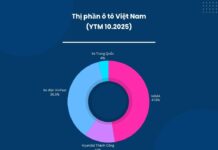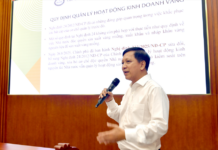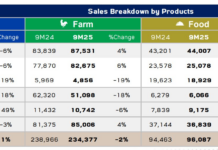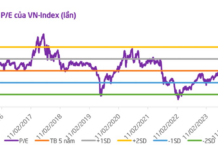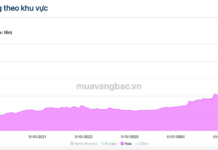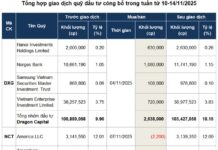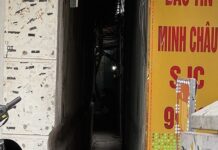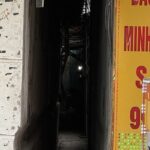No Way Out
The Screc Apartment Complex (located in Nhieu Loc Ward, Ho Chi Minh City) has been plagued by numerous intertwined disputes, leaving residents exhausted for years. Specifically, the project’s developer has unlawfully occupied common areas for rental purposes for decades. Additionally, the technical systems, upon being put into use, have not been fully compensated for the residents. The misuse of common areas for a supermarket and rental purposes has compromised security and fire safety standards.
Another persistent issue is that while residents are eager to resolve these disputes, local authorities, namely the former District 3 People’s Committee and the current Nhieu Loc Ward People’s Committee, lack the resolve to protect residents’ rights effectively.
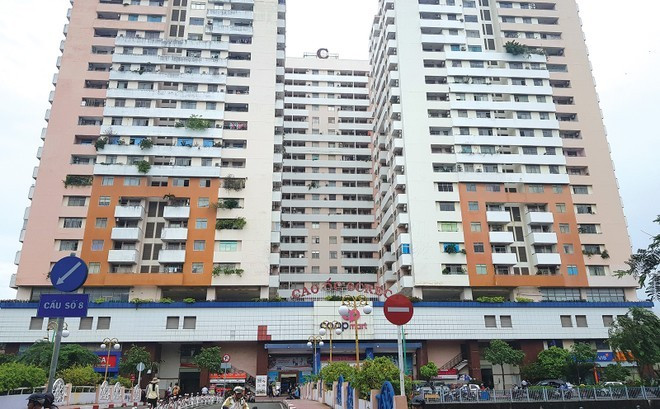
The Screc Apartment Complex has been mired in disputes for years, exhausting its residents.
Mr. Vu Xuan Hung, Head of the Screc Apartment Complex’s Supervisory Board, stated, “Disputes over parking spaces at the Screc Apartment Complex are currently intractable. Many households keep pets, and littering, cigarette butts, and waste from upper floors are common issues. Water leakage from one unit affects others. Residents bear the brunt of these issues, and without effective management and governance solutions, these problems persist.”
Mr. Nguyen Anh Tuan, representative of the Botanica Premier Apartment Complex’s Management Board (located in Tan Son Hoa Ward, Ho Chi Minh City), noted that managing an apartment complex requires both flexibility and professionalism, with transparency being key. However, the current management board faces instability, with capable members stepping down, leaving gaps filled by less qualified individuals.
Furthermore, to approve changes to regulations or important decisions, at least 50% of residents must participate. In reality, many apartment complexes have up to 60% of units rented out, making it difficult to achieve this threshold, leading to operational stagnation.
According to Mr. Tuan, managing an apartment complex is inherently complex, requiring personnel with specialized knowledge and extensive experience, as resident contributions can amount to tens of billions of dong. Therefore, the management board should operate as a professional organization, with members capable of signing contracts and managing finances.
By law, transient revenue sources (such as parking fees and commercial rentals) must be deposited into the maintenance fund. However, the management board faces challenges in utilizing this fund. Some boards have proposed using this revenue to cover daily operational expenses.
“Currently, some apartment management boards have strong credentials but replace competent personnel with less qualified individuals during operations, leading to difficulties in management over time, affecting overall operations. Therefore, there should be regulations requiring management board personnel to hold specific certifications and qualifications,” Mr. Tuan said.
Mr. Le Hoang Chau, Chairman of the Ho Chi Minh City Real Estate Association (HoREA), stated that Ho Chi Minh City has 1,440 old apartment complexes, with 58,000 units lacking pink books, leading to disputes between residents and developers. Without pink books, residents’ legal rights and property ownership remain unsecured.
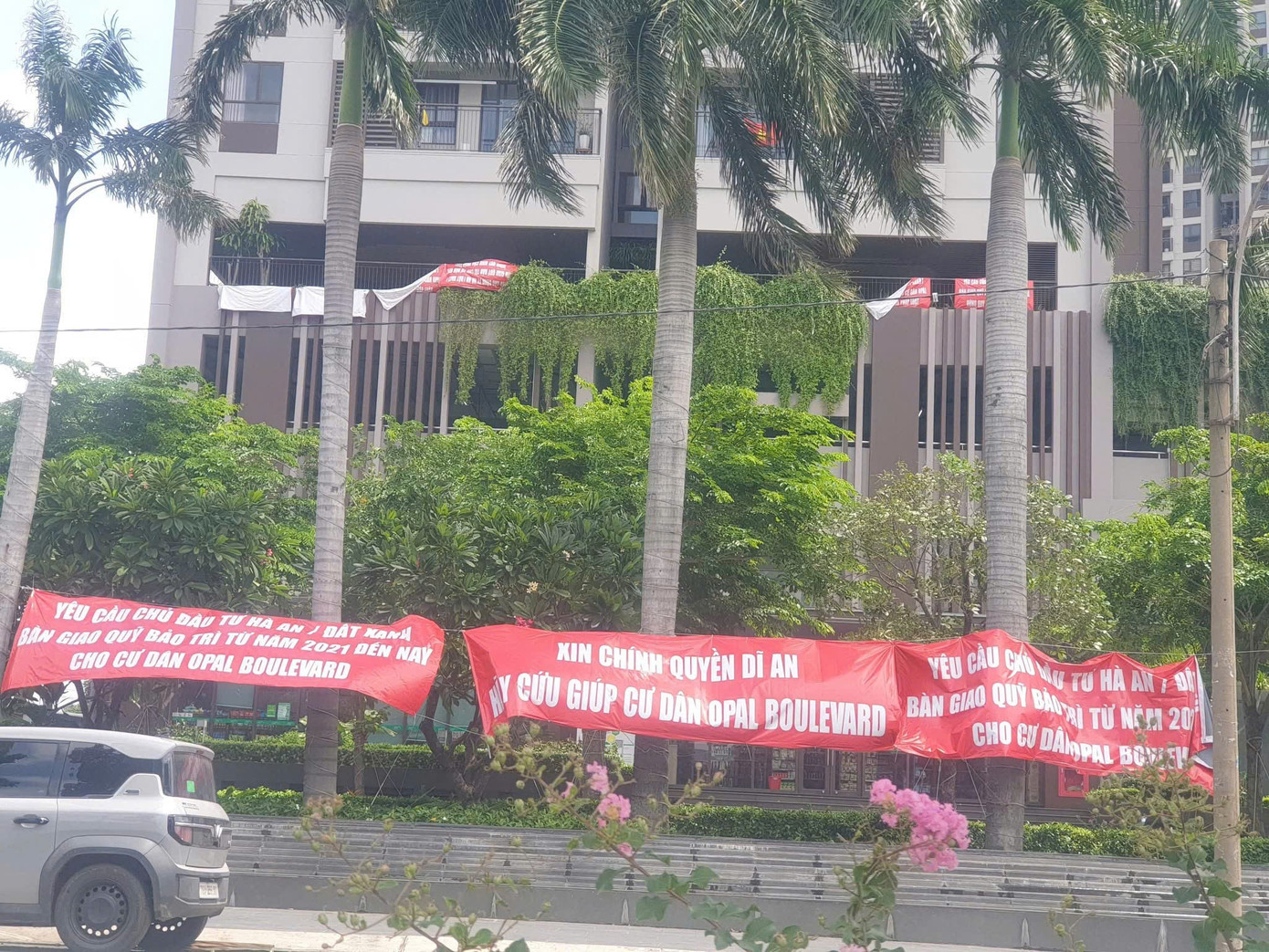
Residents of the Opal Boulevard Apartment Complex seek government intervention as the developer fails to hand over the maintenance fund.
Additionally, the 2% maintenance fee has sparked disputes between residents and apartment management boards. Disputes related to operations, maintenance, and the use of common areas in apartment complexes are also prevalent.
In many apartment complexes, maintenance fees amount to tens, even hundreds of billions of dong. To protect residents’ rights, Mr. Chau believes residents must exercise their ownership rights by participating in apartment meetings. They must understand the significance of their votes to elect the best management board. If conflicts arise, residents should demand a re-election of the management board.
Legalization is Needed
Mr. Vu Tien Thanh, CEO of DKRA Group, emphasized that residents play a crucial role in managing apartment complexes. However, a significant issue is that local authorities issue certificates to management boards but do not regularly monitor them, unlike other sectors. This leads to delayed intervention when violations or complaints arise, prolonging resolution processes.
Mr. Thanh also highlighted a vicious cycle: residents often sue developers, while management companies advance funds to maintain operations but struggle to recover them, creating financial strain.
“The biggest issue is the need for strict adherence to and enforcement of the law, alongside mechanisms for coordination, mediation, and dialogue among stakeholders to find common ground. Only then can we resolve the prolonged conflicts in apartment management and operations,” Mr. Thanh said.
Meanwhile, Mr. Nguyen Pham Huu Hau, Deputy CEO of Tran Anh Group, stated, “Managing an apartment complex requires experience and formal training, as amateurs struggle to handle it effectively. Transparency is essential when managing residents’ funds.”
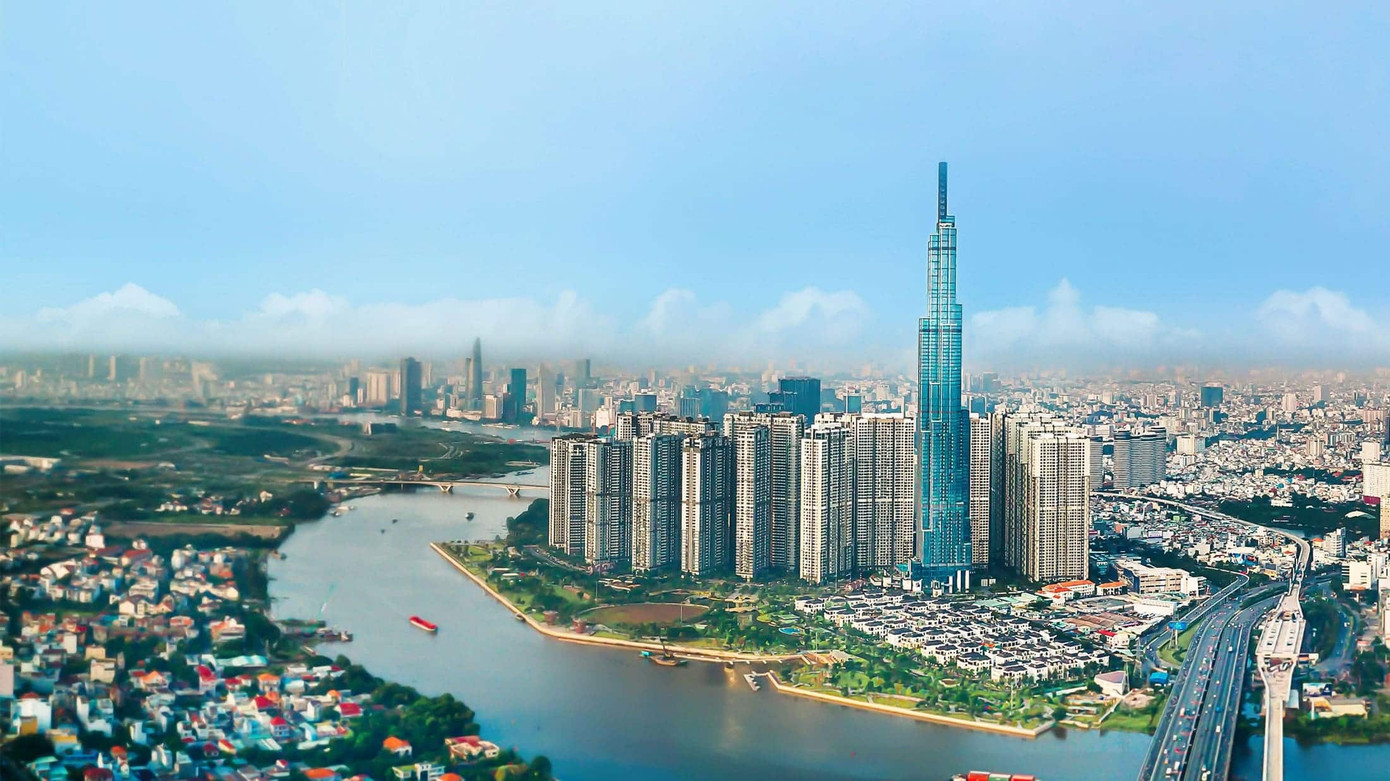
Many apartment complexes in Ho Chi Minh City are embroiled in intense disputes.
“The management board operates similarly to a business, handling revenues of billions or tens of billions of dong. Therefore, board members must possess the necessary skills to sign contracts and manage operations effectively. Standardizing management models through legislation is crucial to helping management boards and developers operate more efficiently,” Mr. Hau said.
Dr. Ha Hai, Deputy Head of the Ho Chi Minh City Bar Association, believes a separate law for apartment complexes is needed, rather than relying on circulars. Current regulations address surface-level issues, while the root causes of disputes between developers and residents remain unaddressed.
According to Mr. Hai, Circular 05 was issued to detail the Housing Law, regulating the management and use of apartment complexes. However, this document only addresses disputes after residents take possession, not the underlying issues from the investment, contract signing, and handover stages. Most current disputes stem from developer actions, such as construction quality violations, unclear handover areas, delayed maintenance fund transfers, and opaque apartment meetings. In contrast, homebuyers primarily violate payment obligations.
“This imbalance shows that current laws do not fully protect residents’ rights as the weaker party in the buyer-seller relationship. It’s time to confront reality. Apartment disputes cannot be resolved with piecemeal regulations. A separate law is essential to protect residents’ rights and create a healthy investment environment for businesses,” Mr. Hai emphasized.
Luxury Real Estate in Ho Chi Minh City’s Bustling Core Rebounds, with Prime Properties Fetching Over One Billion VND Monthly in Rent
Once-vacant commercial spaces are now undergoing renovations, with rental prices ranging from hundreds of millions to over a billion Vietnamese dong per month.
Hundreds of Ho Chi Minh City Apartments to Receive Land-Use Certificates After Additional Land Fees Paid
The Golden King project, featuring Sky 9 apartments, is finally set to receive property ownership certificates after nearly a decade of anticipation. The Ho Chi Minh City Task Force on Resolving Issues Related to Land Use Rights Certificates for Commercial Housing Projects has approved the issuance, marking a significant milestone for residents and investors alike.
$68 Million Spent by Conglomerate to Acquire Prime 2,000m² Plot in Ho Chi Minh City’s Central District
UOA Group has successfully finalized the acquisition of a 2,000-square-meter prime plot in the heart of Ho Chi Minh City for $68 million.





